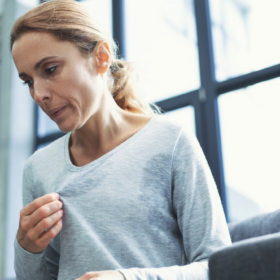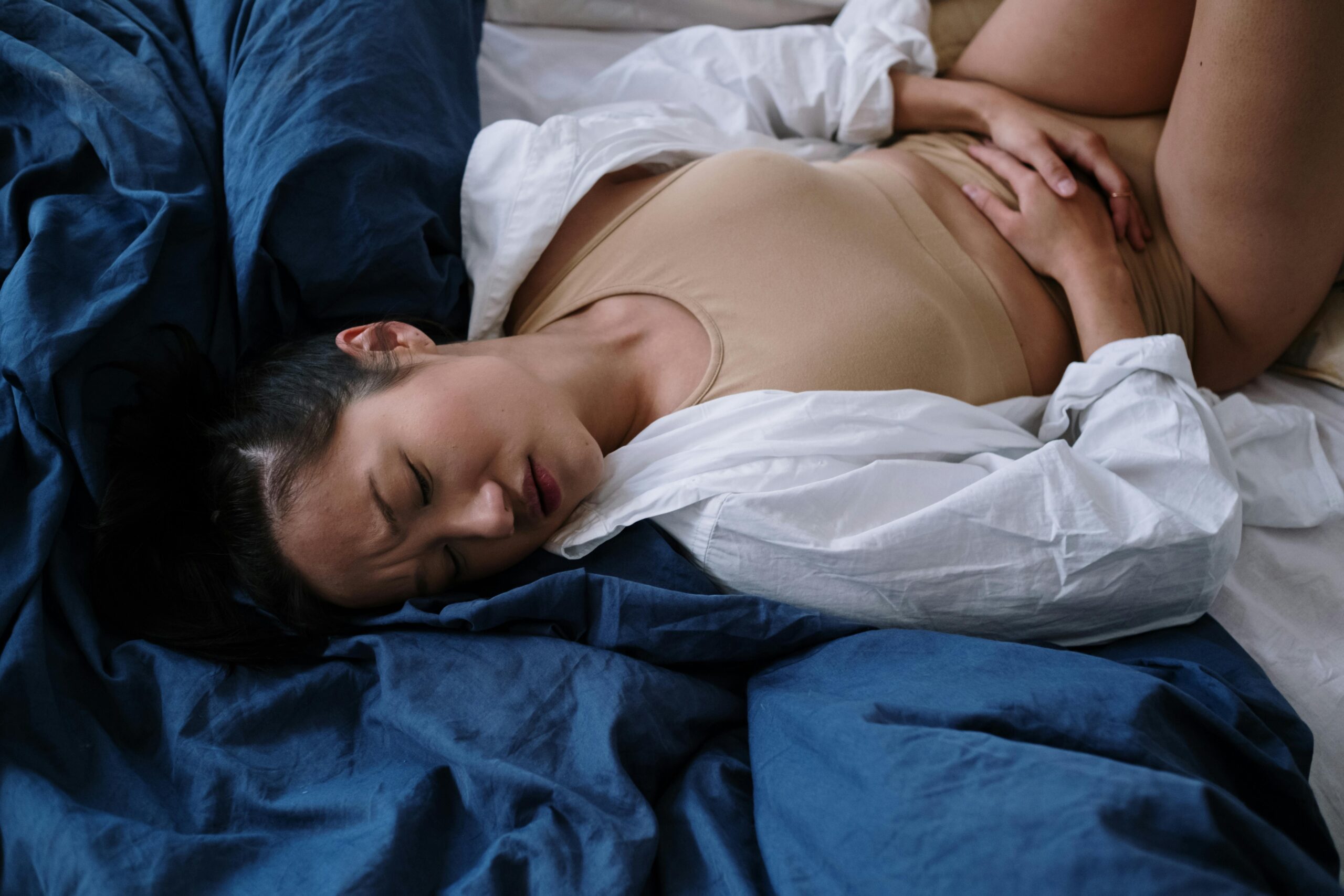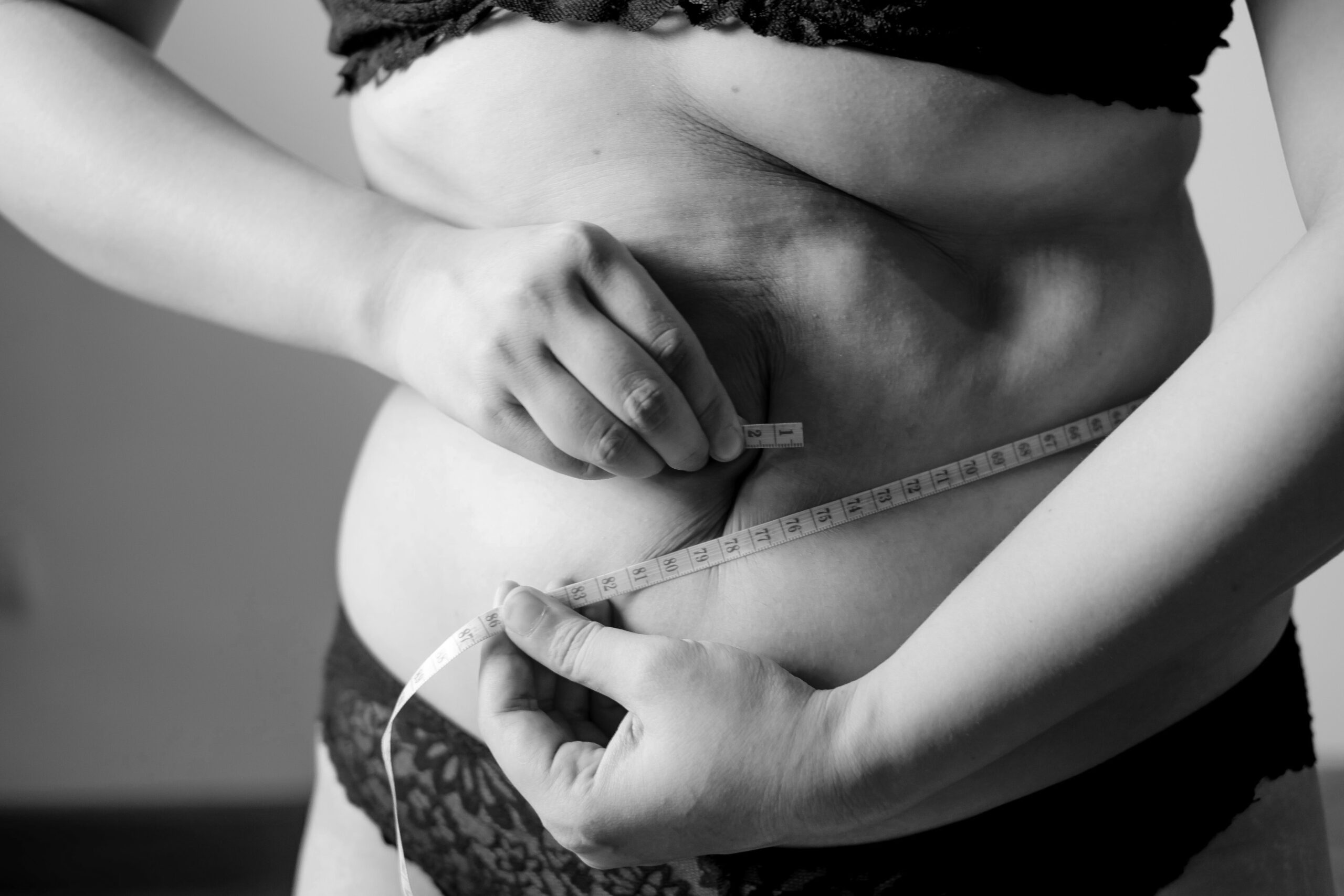
How to manage sleep problems in perimenopause
In this article
What's the lowdown?
Perimenopausal changes may be the reason you have sleep issues
Natural & non-medical remedies you can try include Cognitive Behavioural Therapy for insomnia (CBT-I) and valerian root or passionflower herbal remedies
Don’t be afraid to talk to your doctor about Hormone Replacement Therapy (HRT), struggling with sleep is reason enough to seek medicated support
Struggling to drift off, waking up at odd hours, or feeling like your sleep isn’t as refreshing as it used to be…
Whatever your night looks like, know that perimenopause often comes with disrupted sleep. This phase of life can already feel like a rollercoaster because of all the physical, emotional and psychological changes. Add sleep disruptions into the mix and it can feel extra challenging.
But don’t worry; understanding why this happens and how to tackle it can make a world of difference! Let’s explore a few strategies and natural remedies to recover the restful sleep you deserve.
Perimenopause: why do you have trouble sleeping?
Sleep issues are very common during perimenopause. Studies indicate that up to 50% of women experience some form of sleep disruption during this time1. This can range from difficulty falling asleep to frequent awakenings or being unable to get back to sleep.
The reasons behind this are multifaceted, with hot flushes and night sweats (also called ‘vasomotor symptoms’) partly explaining it2. Of course, if your pj’s get damp and you find yourself shivering, it will impact your sleep and may even lead to insomnia3. Although hot flushes & night sweats are not the only cause, many people report better sleep once these symptoms improve.
Hot flushes and night sweats are a whole chapter in itself, but you can start tackling it by keeping your room temperature below 19°C. You can also talk to your doctor and explore the hormonal replacement therapy (HRT) route, as many people report sleep improvement after starting it4. This is also what some of our community members have been saying. You shouldn’t refrain from seeking medical attention and medication (if relevant to you) as sleep is essential to overall well-being.
The fluctuating hormones during perimenopause, particularly oestrogen and progesterone, are crucial for sleep quality1. Oestrogens play a role in the production of serotonin, a neurotransmitter that helps regulate sleep-wake cycles.
Progesterone is known for its calming effect and is linked to deep sleep5; so having less of it or having the levels rise and fall in an unpredictable way could explain restless nights.
Knowing that perimenopause can last up to 12 years, does that mean you’ll have to deal with poor sleep for this long or the rest of your life? Absolutely not.
Yes, sleep problems can continue throughout this period and into post-menopause sometimes. However, for many women, these issues gradually improve after menopause. Considering the perimenopause window alone, there are a few things you can try, both medical and non-medical.
What you can do to improve your sleep during perimenopause
- Room temperature: Besides maintaining a room temperature below 19°C, make sure your bedroom is dark and quiet to create an optimal sleep environment. Investing in a good mattress and pillows can also make a big difference. Wear loose fitting, cotton pyjamas that breathe.
- Sleep hygiene: Go to bed and wake up at the same time every day, even on weekends. Create a relaxing bedtime routine, such as reading a book, deep breathing, or meditating, and put your screens away to avoid doom scrolling and the blue light that keeps you awake. These healthier habits help signal to your body that it’s time to wind down and prepare for sleep.
- Exercise and enough daylight: Exposing yourself to sunlight helps your daily biological clock (circadian rhythm) and physical activity also helps you feel more relaxed. Your body needs to run on a well-oiled inner clock in order to know when to go to sleep and when to wake up6.
- Food can overstimulate: Avoid consuming large meals, caffeine, or alcohol close to bedtime, as these keep your body too busy (through digestion). Caffeine and alcohol, in particular, can interfere with your ability to fall asleep and stay asleep, leading to more frequent awakenings during the night.
Can HRT help with sleep issues?
Hormone Replacement Therapy (HRT) works by supplementing the body with oestrogen and progesterone, helping to stabilise hormone levels. This can alleviate night sweats and improve sleep quality. Depending on the type of HRT you choose, some regimens may also help directly with sleep, for example Utrogestan is known to make you drowsy! However, HRT isn’t the go-to answer for everyone and should be discussed with your doctor to weigh the benefits and risks.
Natural remedies for sleep struggles
- Herbal supplements: Some people find relief with herbal supplements like valerian root, chamomile, or passionflower, all known for their calming effects7,8.
- Be aware: Black cohosh or phytoestrogens are presented as reducing hot flushes and promoting sleep quality. Research on these is limited or sometimes conflicting and they aren’t suitable for everyone to use10.
What about sleeping pills for perimenopause?
If you get over-the-counter sleeping aids, they may contain melatonin, a synthesised form of a hormone, naturally present in the body.
Melatonin prepares the body for rest, regulates the sleep cycle, and improves mood. Like many other hormones, it can be impacted by perimenopause changes. However, supplementing with melatonin has been studied and shown to help with sleep issues. It’s important to be cautious about the dosage and how long you’re taking it as these two aspects are inconsistent in the studies11; bring up the topic when you see your doctor next time.
Other sleeping aids available from pharmacies include anti-histamines which are used for their side effect of sedation. However, doctors don’t recommend these long term.
Prescription medications for sleep are reserved for the most severe sleep problems. These are only prescribed by doctors for short term use as they have a potential to cause dependence and addiction – so please speak to your healthcare professional in depth about the risks before trying them.
When should you speak to a doctor?
Your body needs proper rest to function. Chronic insomnia can lead to more serious health concerns, including depression, anxiety, or cardiovascular problems. If you’ve had insomnia for several weeks or more, you should talk to your doctor. They can help determine if there is any underlying cause of your sleep issues.
They might recommend personalised treatments like HRT or cognitive-behavioural therapy for insomnia (CBT-I), which is a technique designed to modify behaviours by changing underlying thought patterns.
If your sleep difficulties continue despite trying lifestyle changes and natural remedies, you should also seek medical advice. If you’re uncertain where to start you can reach out to our partners and menopause experts at Stella.
Our medical review process
This article has been medically reviewed for factual and up to date information by a Lowdown doctor.






